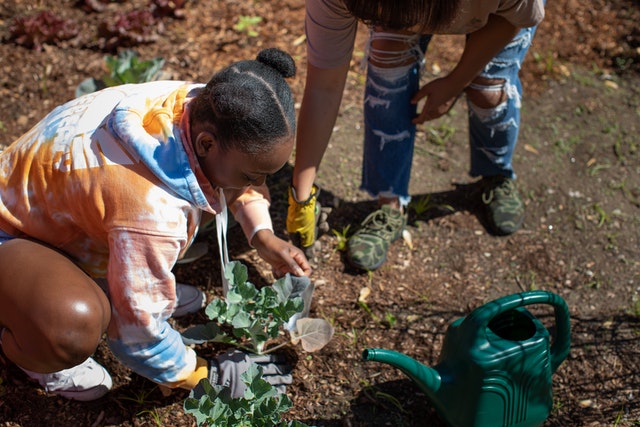Lesson 1 –
John 1:1; 10-18
1 In the beginning was the Word, and the Word was with God, and the Word was God.
10 He was in the world, and the world came into being through him; yet the world did not know him. 11 He came to what was his own, and his own people did not accept him. 12 But to all who received him, who believed in his name, he gave power to become children of God, 13 who were born, not of blood or of the will of the flesh or of the will of man, but of God.
14 And the Word became flesh and lived among us, and we have seen his glory, the glory as of a father’s only son, full of grace and truth. 15 (John testified to him and cried out, “This was he of whom I said, ‘He who comes after me ranks ahead of me because he was before me.’”) 16 From his fullness we have all received, grace upon grace. 17 The law indeed was given through Moses; grace and truth came through Jesus Christ. 18 No one has ever seen God. It is God the only Son, who is close to the Father’s heart, who has made him known.
BACKGROUND
Welcome to 2022! Let us thank God, Jesus, The Holy Spirit, and our Loved Ones for seeing us through another year! This morning’s passage comes from the Gospel of John. This book is different from other gospels because Matthew, Mark and Luke all tell a similar story. Most of the overlap between those stories happens in those three gospels. But John is a different creature. John covers a different time span and includes theological discourse throughout the book. Think of John like a documentary where there are experts interjecting throughout the footage to add their commentary. That does not mean that Matthew, Mark, and Luke are more truthful; it’s simply a different genre.
In your own devotional period, read the entire chapter of John. How does the writer come across to you? Wise? Gossiping? Intelligent? A little nerdy? Something else? What makes you think that?
Today’s lesson will focus on building strong foundations. Read the scripture out loud together. What’s happening in this passage?
The writer says that “in the beginning was the Word.” Not only was the Word in the beginning, but the Word was both with God and God. What a riddle!
The tenth verse begins like a rehearsing of a fantastic legend. He was “in the world,” and the world “came into being through him.” He went on a journey and yet still his own folks did not accept him. But people who did believe in him were given power to become children of God. The Word became flesh and lived among us. There is even a parenthetical statement that includes John reflecting that “this is who I was talking about when I said that someone bigger than me is coming!”
A thick theological statement is made– “No one has ever seen God. It is God, the only Son, who is close to the Father’s heart, who has made him known.”
What is so special about this passage?
Like so many other passages in the Bible, this is not meant to be taken literally, but as a poetically deeply moving way to describe the way Jesus comes to Earth and into history.
Professor Elisabeth Johnson at Lutheran Institute of Theology in Cameroon says it this way–
As many commentators have remarked, the Greek verb translated “lived” in this verse is skenoo, which means more literally, “pitched his tent.” Just as God traveled with the people of Israel in the wilderness by means of the “tent of meeting” in their midst, John announces that God has chosen to “tabernacle” among us in an even more radical way, by the Word embodied in human flesh.
The Message translation says that “the word became flesh and blood and moved into the neighborhood.” There is emphasis in this passage on Jesus being with us.
Why all the emphasis on the beginning?
Last week, we learned about the mirroring that Luke did about Jesus. Augustus gave a funeral oration for his grandmother at the age of twelve, and likewise, we see Jesus in the temple at 12.
This mirroring happens again in this passage.
Around the time of this writing, there was an executive order going around that recommended the calendar year be shifted to September 23, the birth of Augustus. People in power at this time loved their king so much that they wanted to make his birthday the beginning of the new year. If you’d like to read the letter in its entirety, head to the bibliography at the end of this lesson. In short, the letter describes “the Good News,” “peaceful order,” “virtue,” “a savior,” and even “the Birthday of our God.” The tablet acknowledges Augustus as “the son of God” whose birthday is evidence of the beginning of “Good tidings.” It circulated just a few years before Jesus was born.
John’s gospel has a mission. It is to:
- Deny the power of Earthly Kings, especially when they are known to exploit the people.
- To use existing language to explain who Jesus is.
Given Jesus’ ministry and his birth story, it’s hard to imagine him as a king. He comes from very humble beginnings. But the writer of John wants us to imagine him as the King.
Upside down! Jesus has turned us! Inside out, and round and round!
What questions do you still have of this scripture? How will you commit to journeying with this text this week?
Connection to Today’s World

Māori journalist Oriini Kaipara made history in New Zealand when she hosted the 6 PM news. She is the first person with traditional face markings to host a primetime news program on national television. The hosting is temporary, as she is covering for the show’s central anchors.
In New Zealand, the Māori are the indigenous people who lived and live on this land before it was colonized. The facial tattoos are sacred markings. In 2019, Kaipara got her moko (the word for these particular markings) to remind her of her culture.
“When I doubt myself, and I see my reflection in the mirror, I’m not just looking at myself,” Kaipara told CNN. “I’m looking at my grandmother and my mother, and my daughters, and her [daughters] to come after me, as well as all the other women, Māori girls out there and it empowers me.” When she is on air, she uses Māori phrases to speak directly to the people she loves. This language was violently stolen from her ancestors and elders, and she wants to reclaim that language.
For Kaipara, she sees her work as an important part in chipping away at colonization and racism. Her work isn’t about being famous or getting attention, but about being a possibility model for so many others to take pride in their culture.
Solid foundations, indeed.
Journal: What do you want to build 2022 on?
Closing: Listen to “Hold to His Hand,” sung by the Alfred Street Baptist Church Choir.
Prayer:
Dear God,
We look back on 2021 with gratitude, thankfulness, and yes, sometimes horror. Those of us who are in this virtual room can look back and learn. But we honor those who did not make it into this year with us and we speak their names to your heart.
Lord, there will be so many temptations to seek the wrong motivations this year. We will be tempted to lose weight not for health, but for potential relationships. We will be tempted to work hard not because we enjoy our work, but because we need the money. We will be tempted to live in ways that are not authentic because we feel pressured on every side. We ask that you remove these obstacles in 2022 and encourage our most delightful, joyous living. You came so that we might have abundant life.
We ask that you remind us of our inherent value as children of God. Jesus came into our world and set up a tent in our very neighborhood. He came to stay with us because he wants to know us. May we come to know him even more.
In Jesus’ name we pray, Amen.
WORKS CITED
https://earlywritings.com/forum/viewtopic.php?t=3255
https://www.cnn.com/style/article/new-zealand-maori-news-journalist-tattoo-scli-intl/index.html





